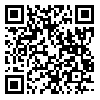Volume 21, Issue 2 (Summer 2024)
bloodj 2024, 21(2): 97-107 |
Back to browse issues page
Download citation:
BibTeX | RIS | EndNote | Medlars | ProCite | Reference Manager | RefWorks
Send citation to:



BibTeX | RIS | EndNote | Medlars | ProCite | Reference Manager | RefWorks
Send citation to:
Javadzadeh Shahshahani H, Nazari M. Evaluating the level of residents' awareness about patient blood management and the impact of education on it. bloodj 2024; 21 (2) :97-107
URL: http://bloodjournal.ir/article-1-1518-en.html
URL: http://bloodjournal.ir/article-1-1518-en.html
Abstract: (1630 Views)
Abstract
Background and Objectives
Patient blood management reduces unnecessary transfusions to improve patients' health. Familiarity of physicians with this program is necessary to improve the outcomes of patients health. This study was conducted to evaluate the effect of education on the level of knowledge of residents in medical centers in Yazd, 2022-2023.
Materials and Methods
The study was a before and after quasi-experimental intervention. 57 medical residents participated. A 20 question questionnaire measured the residents' knowledge level in patient blood management before and after the education. The validity of the questionnaire was measured by a survey of experienced physicians in the management of patient's blood. Reliability with Cronbach's alpha test was 0.8. The data were analyzed using t and Paired-t tests in SPSS 20 software.
Results
35 participants (61.4%) were women and 22 (38.6%) were men. Their mean age was 30.58 ± 5.45 years.The average knowledge scores were 9.38 ± 3.77 and 14.01 ± 3.50 before and after education, respectively (p < 0.001). The lowest response rate before instructions pertained to evaluation of patients' anemia before surgery and knowledge of autologous blood usage. The knowledge score had no significant relationship with age, sex, blood prescription history, and medical practice duration.
Conclusions
Education effectively increased the knowledge of residents. It is suggested to include hold targeted educational programs with emphasis on the areas of anemia management and the use of autologous blood, publish educational guides, and include transfusion medicine and the patient's blood management program in medical education curricula.
Background and Objectives
Patient blood management reduces unnecessary transfusions to improve patients' health. Familiarity of physicians with this program is necessary to improve the outcomes of patients health. This study was conducted to evaluate the effect of education on the level of knowledge of residents in medical centers in Yazd, 2022-2023.
Materials and Methods
The study was a before and after quasi-experimental intervention. 57 medical residents participated. A 20 question questionnaire measured the residents' knowledge level in patient blood management before and after the education. The validity of the questionnaire was measured by a survey of experienced physicians in the management of patient's blood. Reliability with Cronbach's alpha test was 0.8. The data were analyzed using t and Paired-t tests in SPSS 20 software.
Results
35 participants (61.4%) were women and 22 (38.6%) were men. Their mean age was 30.58 ± 5.45 years.The average knowledge scores were 9.38 ± 3.77 and 14.01 ± 3.50 before and after education, respectively (p < 0.001). The lowest response rate before instructions pertained to evaluation of patients' anemia before surgery and knowledge of autologous blood usage. The knowledge score had no significant relationship with age, sex, blood prescription history, and medical practice duration.
Conclusions
Education effectively increased the knowledge of residents. It is suggested to include hold targeted educational programs with emphasis on the areas of anemia management and the use of autologous blood, publish educational guides, and include transfusion medicine and the patient's blood management program in medical education curricula.
Type of Study: Research |
Subject:
Blood transfusion medicine
Send email to the article author
| Rights and permissions | |
 |
This work is licensed under a Creative Commons Attribution-NonCommercial 4.0 International License. |






